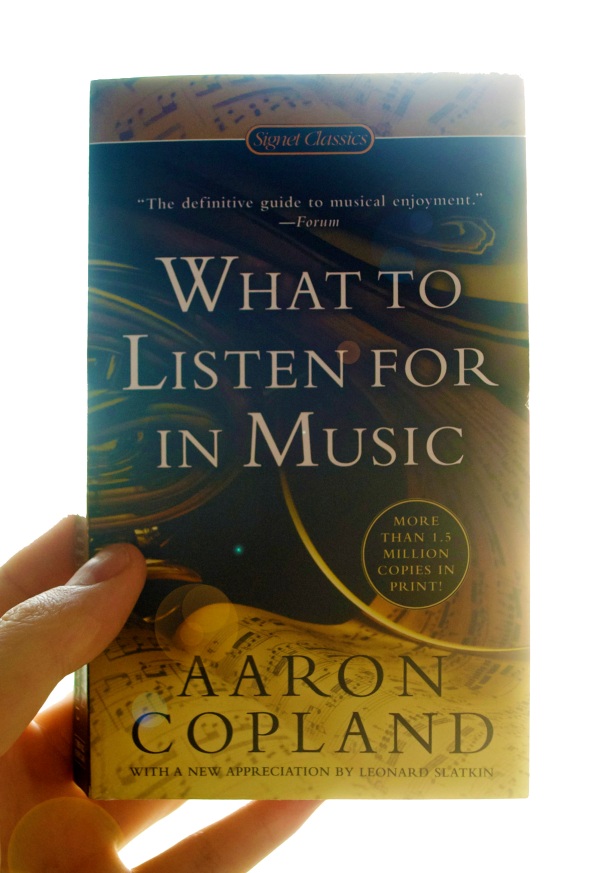
Orchestral Music Bible. From tick-tock to Tchaikovsky—and, confusingly, beyond.
304 pages, ★★★★
What to Listen for in Music is designed for lovers of orchestral music and the people who play it. Anyone else (who merely enjoys music—that’s most of us) would lose track in this book little further than halfway through.
This book starts with scores of pages of praise for the author, Aaron Copland. He’s venerated in this book as one of the Gods of modern music. He is explicitly thanked for having given the United States of America its own style of orchestral music in the 20th century. Bravo.
As someone who merely enjoys music (on the “sensuous plane” as author Aaron Copland puts it with polite condescension), What to Listen for in Music reads like a Buddhist scripture. The book’s “3 planes of musical enjoyment”, “4 elements of music”, “12 major scales” and “5 types of repetition” are reminiscent of the numbered lists so prevalent in Buddhism. These numbered lists, which comprise just over half the book, are quite simple to understand.
What to Listen for in Music gets difficult when all these lists get tangled together. Monophony (a single note) becomes homophony (harmony) and polyphony, which, when played in polyrhythmic, irregular time can be completely indecipherable to those of us who ‘merely enjoy’ music.
Most of all, I learned that when people talk about classical music, not all of them are being pompous name-droppers. Some of them actually love music, and have tuned their ears finely enough to appreciate the great minds who created it. After reading this book, I no longer tune out of conversations about classical music; I simply listen and aspire to fully appreciate. ★★★★
Related articles
- Researchers show why music is so addictive (uw20sciencemediaandculture.wordpress.com)
- The five myths about contemporary classical music (avantmusicnews.com)
- Classical music: Do we cry too much or too easily? How should we speak and write about music? Are non-specialist “critics” too sentimental about music? Washington Post critic Anne Midgette thinks so. (welltempered.wordpress.com)
- Classical Music in the Congo (myteaandpoetry.wordpress.com)
Never thought of this book as a Buddhist Scripture but it is one of my favorite books on music. I was introduced to it by a professor in college who had studied with Copland. Not a lot of people seem to read it any more but I think it deserves to be read by anyone interested in classical music along with his Music and Imagination, a transcript of his Charles Eliot Norton Lectures. For that matter Leonard Bernstein’s Charles Eliot Norton Lectures titled “The Unanswered Question” is a favorite of mine but not a great hit among critics.
LikeLike
Like Buddhist scripture, this book makes little sense until you put it into practice. For a non-musician such as myself, this book would be ten times more educational if it came with a CD. Of course, if you are already proficient at playing and appreciating music, then the book alone would be educational enough.
And I have a lot to learn before understanding the Charles Eliot Norton ‘Unanswered Question’ lectures. I aspire to understand it one day!
LikeLike